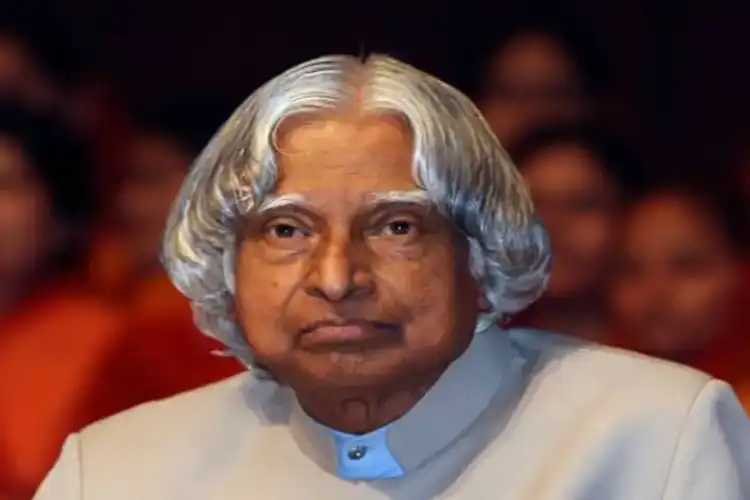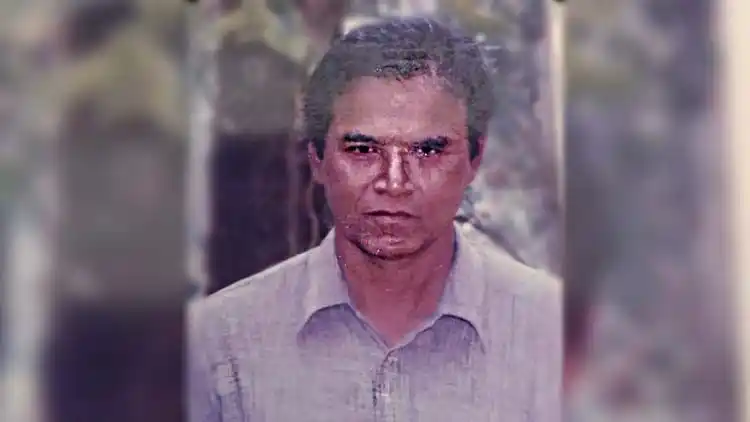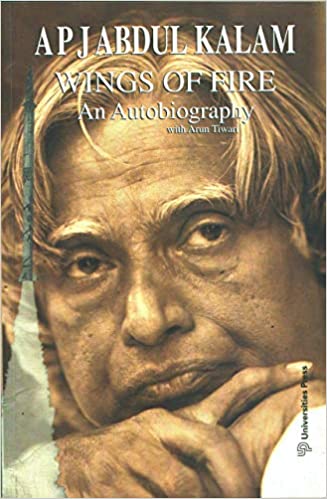
Aasha Khosa/New Delhi
The only reason V J Thomas, a young man in his late twenties employed in Ahmedabad, wrote the test for the job of Administrative Assistant in the Indian Space Research Organisation (ISRO) at Trivandrum in May 1972 was that he wanted to return home, Kerala.
He cleared the test and was called for an interview for the final selection. During the interview Thomas noticed his interview went on for for 45 minutes as against the 10-15 minutes given to other candidates. He also noticed the engineer-member on the interview board who asked him the most question and also sort of grilled him.
Little did he know that the same engineer would become his boss, hero and idol, and the President of India in that order.
“Thomas, do this and finish it by …pm on this day,” is what the young engineer A P J Abdul Kalam would tell his office assistant Thomas in the coming months. “Initially, he said: 'Can you do this and that and when I delivered in time, he started calling me by my name and gave precise orders.”
Thomas, who took voluntary retirement from ISRO in 2000 and now lives in Thiruvanthapuram, said back then the government organizations were not as dynamic as they are today. “There was inertia, cynicism, and negativity all around; it’s amidst this that I found a highly dedicated Boss. He never allowed the acidic environment around to overwhelm him,” Thomas says remembering his hero on his birthday.
Kalam being a workaholic was considered to be eccentric by some of his peers and subordinates. Thomas told Awaz-the Voice that Abdul Kalam was working on a project on the use of fiberglass in the spacecraft when he had joined him as an administrative assistant. He remembers how Kalam moved around in the office and went to others’ desks to check on their work.
“People thought he was eccentric and a simpleton. Since I worked with him, I knew he was a very smart boss and a great manager of men,” Thomas said.

V J Thomas
His style of working was very different. He would allot work and instinctively know who was lagging. “He would go to the person’s desk and ask him how much progress he has made,” Thomas said.
Realizing that the person was not doing enough he would never shout at or scold him. “I have never heard him say what is this or what nonsense is that to others,” said Thomas.
Thomas remembers Kalam as a “polite, humane and yet a firm boss', who understood human mind like no one else. "He was a great motivator and knew how to make others work,” Thomas said. He would sit with a reluctant person and tell them, “Let us do it together; let’s check where the problem is?” There was no way to escape his charm and politeness. “With his persuasive style, people would finish work in time”
Giving an instance of Kalam’s working style, Thomas said, he always finished the big tasks one or two days in advance of the event and ensured all members of his team did the same. Finally, job done, he would declare: These two days are for all to feel refreshed and relaxed.
Thomas has vivid memories of being in a team that was preparing to organize a national-level event on fiberglass. “We all had worked till midnight continuously for many days. Back then there was no internet and even photostat machines and most of the work was done manually.”
“One day, at midnight Kalam appeared in the hall where we all were working for the event and declared, “Now you need to take a break; I will attend to my office; check my mail and office work and will be ready and in office by 6.30 in the morning.”
His only demand to Thomas was to make sure there was a driver who had taken a good sleep to drive him home.“There was no way we too wouldn’t reach the office by 6.30 am,” he said. Thomas later learned that Kalam was in the office till 2 pm as he met him in office at 6.30 am.
One day, Thomas had to pick Kalam up from his lodge where he stayed in Trivandrum. He had reached 5 minutes early not knowing Kalam’s habit of being precise with his schedules.
While Thomas was embarrassed to have intruded into his Boss's privacy, Kalam ushered him to his room while he left to get ready.
“His bed, table, and floor mat had stacks of books. The hay mat traditionally used in Kerala looked like a cradle with a boundary made of columns of books.” The room was very neat. Thomas was so impressed by his boss that he became his ardent admirer and hero-worshipped him all his life.
“He is my hero and I say proudly that people wouldn’t believe such a human being ever walked on this earth,” Thomas, who was undergoing cataract surgery at the time of writing this story and therefore couldn’t provide his pictures, said.
Kalam had to face a lot of snide remarks and criticism after the failure of the first ASLV satellite in 1979. However, when the satellite was launched successfully a year later with indigenous technology and efforts, Thomas says many of his colleagues thought Kalam was getting undue praises in the media.

The cover of APJ Abdul Kalam's book Wings of Fire
“I know the man was not after money or fame; he had no plans for the rise in his career that he eventually had; he just wanted to do something for the nation and his mantra was go indigenous,” reminisces Thomas.
Another criticism Kalam faced at his workplace and Thomas was privy to was he did not have a doctorate. “Today he has 30 honorary doctorates from so many universities,” says Thomas who kept tabs on his hero.
Later, when he read Kalam’s book Wings of Fire Thomas found his hero had lived up to his expectations of not nurturing any bitterness about those days. “He has merely written he failed to understand why some people feel jealous when great things are happening to the nation.”
Thomas worked directly under Kalam for five years. Kalam then moved to Delhi to be in DRDO and yet visited Thumba (ISRO station) as an ex-officio director of the fiberglass project. “Whenever I met him, he would place his hands on my shoulder and speak affectionately.”
Thomas was livid upon reading the Malayalam translation of Wings of Fire as he found inaccuracies in the book. He quickly rushed to the owner of DC books who hails from his village Kanjirapally in Kottayam and made him change the text.
“The next edition of the book had a deadline and Ravi (owner of DC Books) told me that I have five days to work on the book and I did it.”
He was so happy to do it; he owed it to his hero.
ALSO READ: APJ Abdul Kalam led the surge of Muslims in UPSC, higher education
